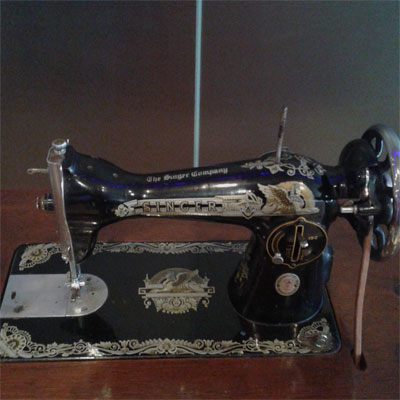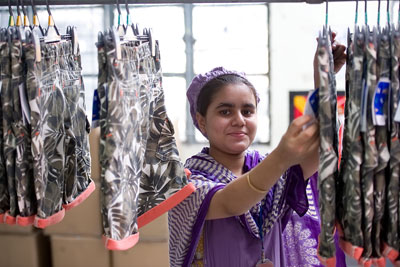Timex Garments 50 years on still “peddling” fortunes
The future of the apparel industry’s Timex Garments today has evolved by “peddling” fortunes from Kandy to Colombo and the world over from stitching to designing and will move from Lankan hands to foreign workers that will create the next line of its designer collections.

Mr. Ashraf Sattar
Timex Garments Chairman Ashraf Sattar in an interview with the Business Times said that the apparel industry was currently looking at improving its chances of hiring labour from neighbouring countries or even the African continent depending on the cost. At present the government has given its nod to the construction sector to import labour.
With the current workforce in Sri Lanka mostly eyeing the lucrative tourism, supermarket chains and retail stores “young people do not want to join so that is where the replacement would have to come in,” he explained.
Mr. Sattar pointed out that while the industry could move ahead with the existing labour force until the next three years however they would be compelled by then to import adequate labour into their factories as manual work could not be replaced by machines.
At present they have about 60 staff from Kilinochchi and Mannar at their Wathupitiwala factory which is said to be reducing as most now prefer to travel to work from their homes since the apparel factories opened up in the North. The government provided concessions for businesses opening up in the North and encouraged more factories that would also attract a good workforce.
Mr. Sattar was quick to note that this issue of selection of which job to get into was mainly a concern among the village youth who preferred to get into jobs other than those in the apparel industry preferring to work in an air conditioned environment with better perks and incentives.
But 50 years back when the company started out they used some of the oldest Singer branded sewing machines which is still on display at their head office in Colombo in addition to employing locals to stitch shirts.
Starting out
Due to restrictions in Colombo the company was compelled to first set up their tailoring business with about 15 sewing machines in Kandy and once the business kept expanding with an international order coming in they shifted the operation to Wolfendhal Street in Colombo.

Sewing machine used by the company when it began, 50 years ago.
These peddling machines then increased to about 100 following an export order they received from Sweden.
Mr. Sattar reminisced how the Swiss who already had a production facility in India believed it to be costly due to the quota system deployed to Europe as a result of which they chose Sri Lanka.
The Swedish company had then placed orders with Timex Garments and sent fabric from India following which they continued to receive more orders and due to the quota system prevalent in India and China, Sri Lanka stood to gain.
“So we grew factories to do blouses,” and since it was found that it was profitable to sew anything but shirts Mr. Sattar noted that they changed their product offering to nightwear and lingerie.
The company name initially was Fergasam that then bought over the Timex Garments and then in 1994 established the first big factory under the new government programme to set up 200 garment factories.
This led to the opening up of a factory in Wattala and a lingerie facility in Wathupitiwala and the company has today grown to cater to the livelihoods of 10,000 of its staff out of which 8,000 are in Sri Lanka and about 2,000 in Bangladesh.
The company also set up a factory recently in Mannar but Mr. Sattar noted that there was slow progress in this facility due to the fact that they found it difficult to train the workers in those areas who were also not quick to pick up on the English language either.
However, he was positive they should be able to expand to 3000 from the existing 2000 workforce within two years.
Change in the air
Timex Garments has today started a retail outlet showcasing their own designs under the Avirate brand name with one in Kandy and three stores in Colombo.
Currently, the company also has three stores in Bangalore and want to also go into retail by entering the shop-in-shop concept. Mr. Sattar commended government moves to regain the trade concessions to the European Union (EU GSP+) bloc as a result of which he pointed out that the industry had grown to US$7 billion that had given a boost to the sector.
Business has increased by 10 per cent alone for the company and they expect it to increase by 20 per cent over the next two years.

Bangladesh facility
Moreover, Mr. Sattar noted that they were looking at expanding their offering by being increasingly engaged in the designing of the garments and providing customized solutions for buyers as well. At present the company has about 20 designers out of which three are expatriates.
They would be focusing on future expansion in selling on their own label and entering the Middle Eastern market in about five years with their brand and market the designs in their own stores and shop-in-shops.
Timex Garments has also now ventured into more lucrative businesses like the leisure sector by taking over Ranna 212 in March 2017. The 55-room, four star property has been recently refurbished and is said to be overbooked for the season.
Mr. Sattar also said that they were hoping to establish a property in the Maldives in the next few years. Going forward after GSP+, he explained the sector would see more countries moving out of the garment industry and as a result it would be to the advantage of Sri Lanka.
“We won’t lose the skill of the garment industry and in time to come even without GSP+ we will be ok,” he said adding that the trade agreements with China and India would help to position themselves well.
He expects production to shift to Sri Lanka and more garments to be sold to the Chinese market as well in time to come. Even today some of their shipments are sent to China as well.
Moreover, the future is spelt out in the takeover of brand names and moving into those markets so that the sector would have total integration.


